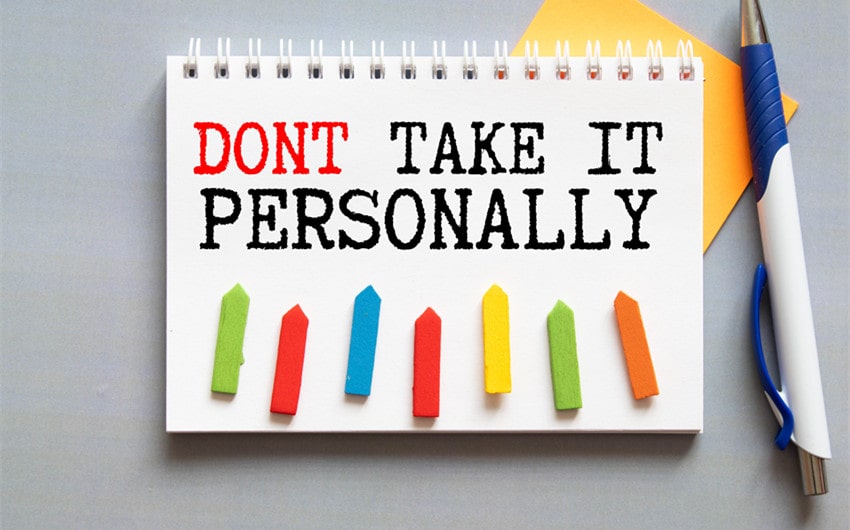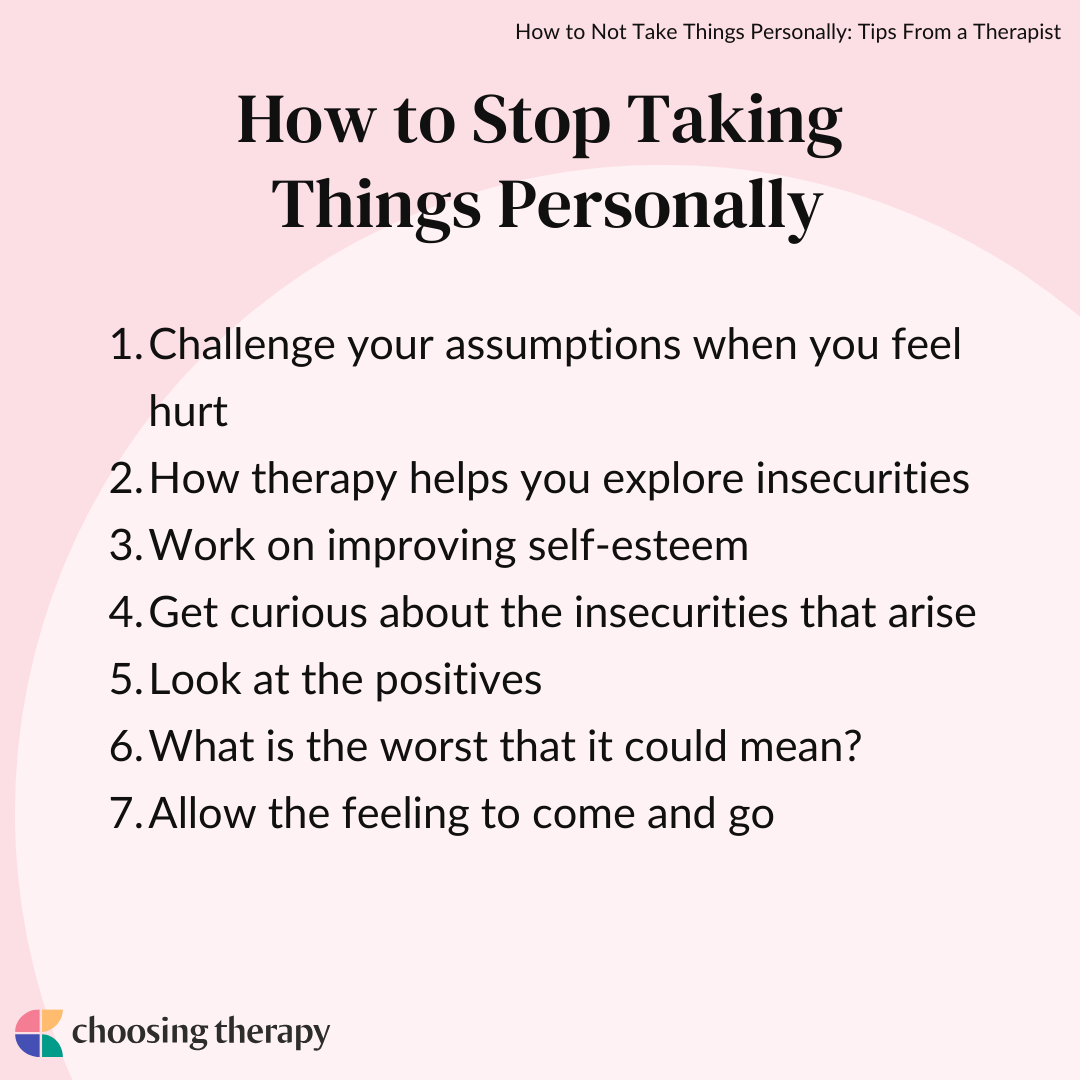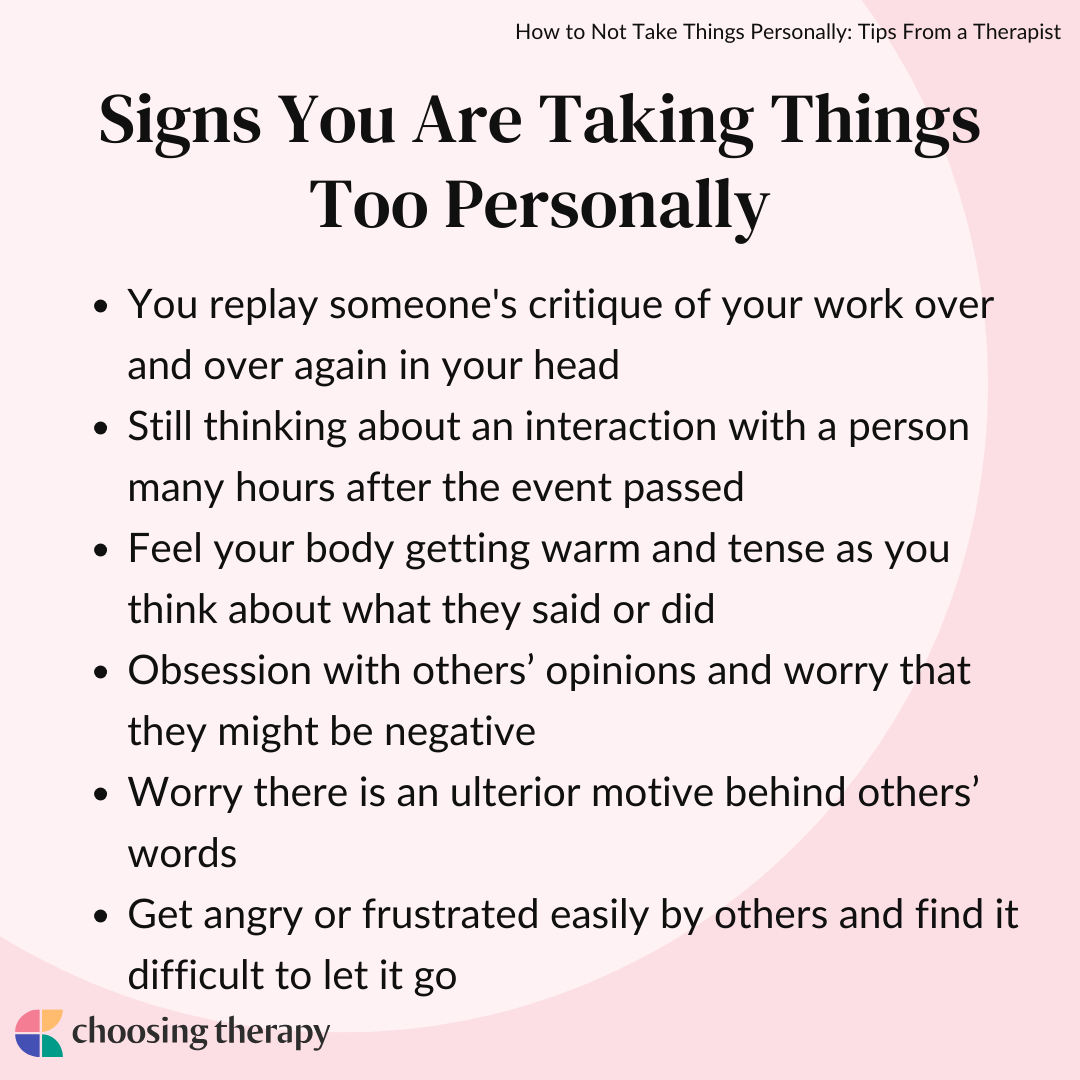How To Not To Take Things Personally

In today's interconnected and often critical world, the ability to navigate interactions without internalizing negativity is a valuable skill. Learning to separate objective feedback from perceived personal attacks can significantly improve mental well-being and foster healthier relationships.
This article explores practical strategies for managing personal reactions and developing a more resilient mindset when faced with criticism or perceived slights. These techniques are crucial for effective communication, personal growth, and maintaining emotional equilibrium in both personal and professional spheres.
Understanding the Root of Personalization
Taking things personally often stems from deeply ingrained beliefs and insecurities. These beliefs can be triggered by external comments or actions, leading to an emotional response that is disproportionate to the situation.
Dr. Susan David, a renowned psychologist and author of "Emotional Agility," emphasizes the importance of recognizing these underlying patterns. "By understanding where these reactions originate, we can begin to challenge their validity," she states in her various publications and workshops.
Practical Strategies for Detachment
Identify Triggers
The first step is to become aware of the situations and types of comments that typically elicit a personal response. Keeping a journal can help identify recurring patterns and specific phrases that trigger negative emotions.
Once you know your triggers, you can prepare strategies for managing your reaction when they arise. This might involve taking a deep breath, pausing before responding, or consciously reframing the comment.
Challenge Negative Thoughts
When a situation triggers a personal reaction, it's essential to challenge the negative thoughts that arise. Ask yourself if there is evidence to support these thoughts or if they are based on assumptions or fears.
Consider alternative interpretations of the situation. Could the person have had good intentions? Is there a possibility that their comment was not directed at you personally?
Focus on Facts, Not Feelings
Objectively assess the situation by focusing on the facts rather than your feelings. Separating your emotional response from the actual event can help you to gain a more balanced perspective.
For example, instead of thinking "My boss hates my work," consider the specific feedback you received and whether it was constructive and actionable.
Practice Empathy
Attempt to understand the other person's perspective. People's behavior is often influenced by their own experiences, insecurities, and challenges, which may have nothing to do with you.
Practicing empathy can help you to detach from the perceived personal attack and see the situation from a more compassionate viewpoint.
"Understanding that other people are also dealing with their own struggles can help soften the blow when criticism comes your way," notes Brene Brown, a research professor and author.
Set Boundaries
Establish clear boundaries in your relationships and interactions. Communicate your needs and expectations clearly and assertively, and be prepared to disengage from conversations or situations that become toxic or disrespectful.
Learning to say "no" and prioritizing your own well-being is crucial for protecting yourself from unnecessary emotional distress. Remember, your time and mental energy are valuable.
Seek Professional Help
If you consistently struggle with taking things personally, consider seeking professional help from a therapist or counselor. A therapist can provide guidance and support in developing healthier coping mechanisms and addressing underlying issues.
Cognitive Behavioral Therapy (CBT) is often effective in helping individuals identify and change negative thought patterns. It is worth consulting the resource from the American Psychological Association (APA), which provides information on various therapies and therapists.
The Long-Term Benefits
Mastering the art of not taking things personally offers numerous benefits, including improved mental health, stronger relationships, and increased resilience. It allows you to respond to challenges with greater clarity and composure.
By implementing these strategies, individuals can navigate interpersonal interactions with more confidence, self-assurance, and emotional stability. Ultimately, learning to detach from perceived slights allows you to focus on your own goals and values without being unduly influenced by the opinions of others.


















